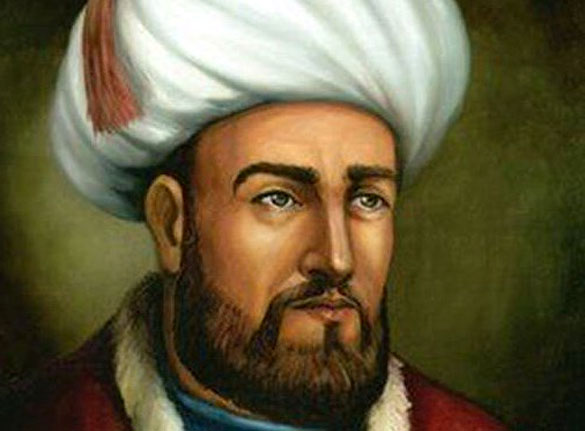Burying the Murshid: Academic Amnesia and the Fight for Islam’s Intellectual Soul

By Dr Mohammad Abul Mufazzal, New Age Islam
20 May 2025
Main Points:
1. Saad Ahmad’s “Who Killed Al-Ghazali?” is not a mere reflection on the fate of a single figure—it is a philosophical pilgrimage.
2. One of the most arresting questions Ahmad poses is nearly whispered amid this dense thicket of ideas: Why did Kant’s thesis bear the basmala?
3. Al-Ghazali’s legacy, as Ahmad reimagines it, is thus disentangled from the ossified realm of syllogisms and manuscripts.
4. Al-Ghazali’s legacy persists not as dogma but as a living question, a challenge to reconcile the sacred with the profane, memory with progress, and humility with critique.
-----
A Review of “Who Killed Al-Ghazali?” by Saad Ahmad
-------

(From Files)
-----
Abstract
This essay responds to or extends Saad Ahmad’s “Who Killed Al-Ghazali?,” a poignant philosophical and poetic reflection on the legacy of the 11th-century Islamic scholar Al-Ghazali, presented as a lament for the loss of epistemic humility under modernity’s rationalist dominance. Combining historical narrative, cultural critique, and mystical exploration, Ahmad investigates and finds or identifies that al-Ghazali was killed; his legacy was destroyed —not through theological counterarguments but through the Enlightenment’s suppression of sacred metaphysics. He portrays Delhi’s ruins as rebellious archives, countering modernity’s forgetfulness, and reframes Al-Ghazali’s legacy in lived practices rather than scholarly abstractions. By questioning whether Kant’s metaphorical basmala reflects a shared longing for transcendence, Ahmad contrasts Western causal frameworks with Ghazali’s occasionalism, asking: Can divine intimacy and humility endure in a disenchanted era? This work, both a mournful elegy and a stirring challenge, urges readers to yearn for a revived understanding of knowledge that honours reason’s limits and the sacred vitality.
--------
Saad Ahmad’s “Who Killed Al-Ghazali?” is not a mere reflection on the fate of a single figure—it is a philosophical pilgrimage. Draped in poetic melancholy and laced with deep-seated grief over civilizational disintegration, the piece is a defiant lament for a lost world—a world where knowledge transcended the page, and truth flowed through the pulse of the cosmos. Ahmad’s writing resists easy classification. It is historical narrative, cultural critique, theological inquiry, and personal yearning—woven together in a style that is as rich and layered as the subject it engages.
At the heart of this meditation lies a chilling question: Who killed Al-Ghazali? Who silenced the Murshid of mystic insight and metaphysical rebellion? Was it the formal rationalist refutations of Ibn Rushd, the silent departure of Ibn Tufayl, the theological redirections of Ibn Taymiyyah? Or perhaps, more hauntingly, was it none of them—but rather modernity itself, or its acolytes nestled in ivory towers and peer-reviewed complacency?
Indeed, Ahmad’s central claim rests on a painful paradox: Ghazali, the reviver of faith, the mystic logician, was not defeated by arguments—but by the erosion of epistemic humility in an age of arrogant certainty. Modern academia, with its insistence on causality, secular validation, and interpretive hegemony, leaves little room for truths that defy reason. And what is God if not the ultimate challenge to causal thinking?
One of the most arresting questions Ahmad poses is nearly whispered amid this dense thicket of ideas: Why did Kant’s thesis bear the basmala?
This question, simultaneously rhetorical and ferventlygenuine, destabilizes our understanding of the Enlightenment as a purely secular project. It invites us to consider: Did Kant, the architect of modern critique, sense that philosophy without transcendence is a house without foundation? In this subtle invocation, Ahmad suggests that Kant—despite his silence on Islam—stood closer to Al-Ghazali than Renan ever could.
Could it be that Kant, like Al-Ghazali, saw the limits of reason not as failures but as doorways to the Absolute? Could the basmala (in Islamic tradition, basmala is a sacred invocation recited before reading the Qur’an or engaging in intellectual inquir to seek divine guidance and sanctify the endeavour.) on his thesis be an echo—intentional or unconscious—of a deeper yearning for divine anchoring in an otherwise mechanized cosmos?
What is perhaps most admirable in Ahmad’s essay is not merely his defence of Al-Ghazali as a theologian or philosopher, but his vision of Ghazali as a seer. The remark that “knowledge is not merely confined to bound texts — it exists beyond the realm of interpretation” is as much a mystical claim as it is an epistemological one. It resonates with Ghazali’s own distinction between acquired knowledge (ilm al-kasb) and unveiled certainty (ilm al-mukashafa).
In Ahmad’s telling, Ghazali’s philosophy is not dead—it has simply been buried under the rubble of reductive interpretations and post-Enlightenment presumptions. The true erasure of Ghazali lies not in refutation, but in forgetting what he sought to recover: a sacred metaphysics where the heart can know what the mind dares not grasp.
Here, Ahmad echoes the prophetic anguish of Heidegger, who mourned the “forgetting of Being.” But while Heidegger turned to pre-Socratics, Ahmad turns toward the luminous shores of Islam’s own intellectual tradition—asserting that the crisis of knowledge is a crisis of orientation: towards what is knowledge aimed?
Ahmad’s reflections on causality—particularly the tension between Western and Islamic paradigms—form a powerful critique of intellectual modernity. He portrays the West as entrapped in a closed-loop of cause and effect, where meaning is subordinated to mechanism. In contrast, Ghazali's occasionalism insists that every event, every spark, is the direct result of divine will.
But Ahmad does not stop at theological disputation. He asks us to consider the metaphysical implications of this divergence: What kind of world do we live in if we remove God from causality? What is left of moral responsibility, of spiritual aspiration, of the ineffable experience of being?
Ghazali’s conception of Musabbib al-Asbab—God as the Cause of causes—is not a denial of order but a rejection of autonomy. It is a rebuke to the Enlightenment fantasy that man is the measure of all things. And perhaps that is why he had to be “killed”: not because he failed, but because he succeeded too well in revealing the illusion of secular mastery.
In Ahmad’s evocative meditation on Delhi’s stones and dust, we encounter a incisive interrogation of memory, materiality, and resistance. The city’s ruins, rendered animate through lyrical personification—“they speak, they whisper, they remember”—transcend their inert materiality to become custodians of collective memory. This anthropomorphic resonance is not merely poetic but polemical, challenging modernity’s teleological narrative of progress, which demands a rupture from the past. Here, Ahmad aligns with Walter Benjamin’s conception of history as a fragmented constellation, where the debris of the past exerts a “weak Messianic power” to disrupt homogenizing temporalities. The stones and dust of Delhi, imbued with the weight of centuries, emerge as insurgent archives, resisting the erasure enacted by modernity’s “demand for amnesia.” Their whispers are acts of defiance, preserving traces of a civilization whose epistemic and spiritual frameworks remain entangled with the sacred.
Al-Ghazali’s legacy, as Ahmad reimagines it, is thus disentangled from the ossified realm of syllogisms and manuscripts—the traditional loci of scholarly veneration—and relocated to the embodied, inherited practices of everyday life. This shift echoes Talal Asad’s critique of secular modernity’s bifurcation of religion into abstract belief versus practice, urging instead a focus on “discursive traditions” that sustain divine intimacy through lived ritual. Al-Ghazali, the 11th-century polymath whose Ihya Ulum al-Din (Revival of Religious Sciences) sought to harmonize Sufi mysticism with orthodox theology, is recast not as a relic of medieval scholasticism but as a spectral presence animating the tactile, the communal, and the devotional. His true inheritance lies not in the arid corridors of academia but in the whispered dhikr (remembrance) of the faithful, the call to prayer echoing through alleyways, and the humble act of saying Bismillah before thought—a gesture that sanctifies cognition itself.
The essay’s central provocation—“Who killed Al-Ghazali?”—unfolds as a critique of modernity’s epistemological hegemony. The murder, it suggests, is not the work of a singular agent but a systemic violence perpetrated by the Enlightenment’s “disenchantment of the world” (Max Weber). The sacred, once suffused with ineffable mystery, is subjected to the clinical gaze of demystification: peer-reviewed journals reduce divine truth to footnotes, while the academic impulse to “translate the ineffable into digestible arguments” mirrors what Gayatri Spivak terms “epistemic violence”—the colonization of subaltern knowledge by dominant paradigms. To demand that God be footnoted is to exile the transcendent from the realm of legitimate knowledge, privileging empirical rationality over what William James called the “unseen order” to which religion harmonizes us. In this light, Al-Ghazali’s “death” signifies the marginalization of hermeneutic modes that embrace ambiguity, humility, and the limits of human reason.
Yet the essay’s greater urgency lies in its existential query: “Can Al-Ghazali still live?” Here, Ahmad gestures toward a phenomenological possibility—that the very act of yearning for Al-Ghazali’s vision may resurrect it. The “ache” evoked by the essay is not passive nostalgia but an active, embodied longing that, as Saba Mahmood argues, constitutes ethical subjecthood. To ache is to inhabit the gap between modernity’s alienating rationality and the enduring pull of the sacred, a space where Al-Ghazali’s epistemology of yaqin (certainty through spiritual experience) might still breathe. This is not a call to regress but to reimagine—to ask, as Kant did in his critical project, how faith and reason might coexist without subjugation. Can we, in our cities and institutions, cultivate a “radical humility” that acknowledges the limits of secular reason, as Al-Ghazali did in his Deliverance from Error?
Ahmad’s refusal to answer these questions is itself a methodological stance, privileging the interrogative over the declarative. By making us “ache,” the essay performs what Heidegger termed Gelassenheit—a releasement toward openness—inviting readers to dwell in the unresolved. In this liminal space, Al-Ghazali’s legacy persists not as dogma but as a living question, a challenge to reconcile the sacred with the profane, memory with progress, and humility with critique. The stones of Delhi, like the unquiet grave of Al-Ghazali, remind us that what modernity buries, poetry—and longing—may yet resurrect.
-------
Dr. Mohammad Abul Mufazzal, a distinguished writer, researcher, and multilingual speaker, has made significant contributions to academia and various cultural initiatives. He has shared his insights on esteemed platforms such as the UN General Assembly, the Forum for Arab and International Relations in Qatar, and Adelphi University in the United States. With a profound interest in Islamic Archaeology, his extensive body of work includes numerous research papers and articles published in both national and international journals and newspapers. A recipient of multiple fellowships, Dr. Mufazzal has twice represented at the UN Academic Impact Global Youth Forum in New York City, further solidifying his influence in scholarly and global discussions.
URL: https://www.newageislam.com/books-documents/murshid-academic-amnesia-intellectual-soul/d/135589
New Age Islam, Islam Online, Islamic Website, African Muslim News, Arab World News, South Asia News, Indian Muslim News, World Muslim News, Women in Islam, Islamic Feminism, Arab Women, Women In Arab, Islamophobia in America, Muslim Women in West, Islam Women and Feminism
